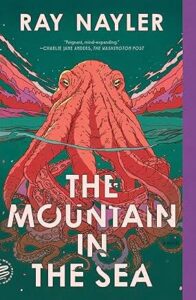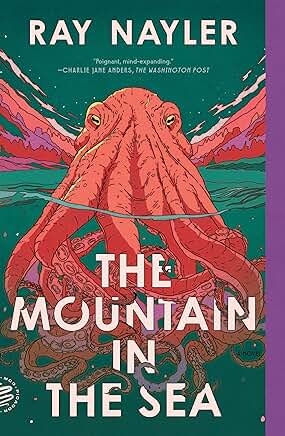 When Dune was first published in 1965, I was 22 years old. I remember the sense of intrigue and wonder I experienced trying to figure out the minds of the Fremen, the desert people, or the Bene Gesserit, the matriarchal order that used a special arresting voice, and not least of all the Sand Worms, and how they all affected one another, often under the influence of the exotic Spice. In the sixties, when we were learning that the mind had depths that could be explored, though not necessarily understood, under the influence of spice-like hallucinogens, Dune added another mysterious dimension to experience.
When Dune was first published in 1965, I was 22 years old. I remember the sense of intrigue and wonder I experienced trying to figure out the minds of the Fremen, the desert people, or the Bene Gesserit, the matriarchal order that used a special arresting voice, and not least of all the Sand Worms, and how they all affected one another, often under the influence of the exotic Spice. In the sixties, when we were learning that the mind had depths that could be explored, though not necessarily understood, under the influence of spice-like hallucinogens, Dune added another mysterious dimension to experience.
Reading Ray Nayler’s The Mountain in the Sea reminded me of that experience reading Dune decades ago. It opened up another world, another way to experience the world, but this time that new perspective didn’t require traveling to a fictitious, distant planet. It was the world of a conscious, intelligent octopus here in earth’s oceans. Nayler takes us inside the minds of a number of his characters. In fact, much of the intrigue of the book is experiencing the central situation from myriad perspectives, each of them with a different and only partial understanding, almost none of them cognizant of each other. There is a mysterious woman, whose identity is never revealed, even her actual face being disguised, who works for an unidentified but powerful organization and orders the death of nearly everyone she talks to after they have served whatever purpose she needs them for. We go inside the minds of the people she uses, but neither they nor we, the reader, comprehend the larger picture that is determining her decisions.
On the island of Con Dao, where research on the octopuses takes place, the main character of the novel, Doctor Ha Nguyen, an earnest marine scientist, narrates her own story as she tries to figure out why she has been given her position, what her employer’s motives are, and what kind of people she is working with, which are an AI emulation of a human and a dedicated guard/assassin who protects the island and the project. As we follow the progress in establishing communication with the octopuses, we also follow the progress of a captive fisherman, who is determined to reach the island, and in doing so, we get a first-hand look at the predatory behavior of humans toward life in the sea.
Besides the motivations of the various human players in the story, the chief mysteries involve understanding both Evrim, the AI emulation and the octopuses, that is, comprehending how they think and understand their world. We never really do. As in real life, we are unable to get beyond our own human, anthropocentric perspective, although Ha Nguyen goes far enough to understand such limitations, and at the end of the book, remains determined to break out of her human perspective.
While Dune was wildly imaginative, but scientifically implausible, The Mountain in the Sea attempts to stick reasonably close to science, both with regard to AIs, which is as much a theme of the book as the octopuses, as well as with regard to the latter. The science appears mostly in the reflections of Ha Nguyen and Dr. Arnkatla Minervudottir-Chan, the designer of both Evrim, the AI, and the octopus research project. There is an emphasis upon symbols and communication that reflects the point of view of Eduardo Kohn’s How Forests Think, a book without which Nayler says “this book would not have been possible.” (I’ve ordered the book) This emphasis may have slanted Nayler’s view to make the octopuses more like humans than they actually are, but it provides a common ground for understanding between species, without which some of the meaning of the story might be lacking. Stanislaw Lem’s depiction of aliens in stories such as Solaris and The Invincible, which makes their way of thinking and understanding the world incomprehensible to humans, may be more the truth, than a common ground of symbols, but future research will tell.
The effort to stretch our own minds to understand the world from the point of view of another species, either an organic one, such as octopuses or an inorganic one, such as Evrim, the AI, is an experience that science fiction, more than any other realm at the moment, can bring to us (although AI developments are rapidly catching up with sci-fi). A human insight on which The Mountain in the Sea directs a spotlight, is that humans are predators, and we are prone to see the world through the lens of a predator, i.e., what profits our survival, especially access to food, but also territory, power, and dominance, is what determines our relationship with other species, either animal or plant. Any human who has hunted another animal (and I suppose those that hunt for plants, such as mushrooms or edible tubers, are the same) has had the experience of tunneling their vision so that they don’t notice the beauty or uniqueness of the natural world around them while they are “on the hunt.” When I was a young man, I gave up underwater spearfishing, because the underwater world had lost its beauty and charm to me when I hunted. I returned to just looking and exploring. So, like most really good books, The Mountain in the Sea causes us to examine our own psyche as well as those of the non-humans the book is “about.”
I’ve read some fantastic science fiction in the last few years. Writers such as Arkady Martine, Julie E. Czerneda, Sylvain Neuvel, and Adrian Tschaikowsky have broken new ground, either in terms of the concepts they’ve written about or their elegant or original styles of writing. Ray Nayler joins this group on both counts, conceptually and literarily. I was brought back to the kind of writing that made me think and wonder. Reading The Mountain in the Sea is a profound experience.
Interested in scif-fi about AIs solving moral dilemmas in a future that has them exploring our galaxy? Read Casey Dorman’s Voyages of the Delphi novels: Ezekiel’s Brain and Prime Directive. Available on Amazon. Click Here!
Subscribe to Casey Dorman’s Newsletter. Click HERE







A very thoughtful, in depth review, as usual, Casey. I would read the book merely for the octopuses, to be truthful. Saw The Octopus Teacher and that movie solidified my reverence for this intelligent creature.